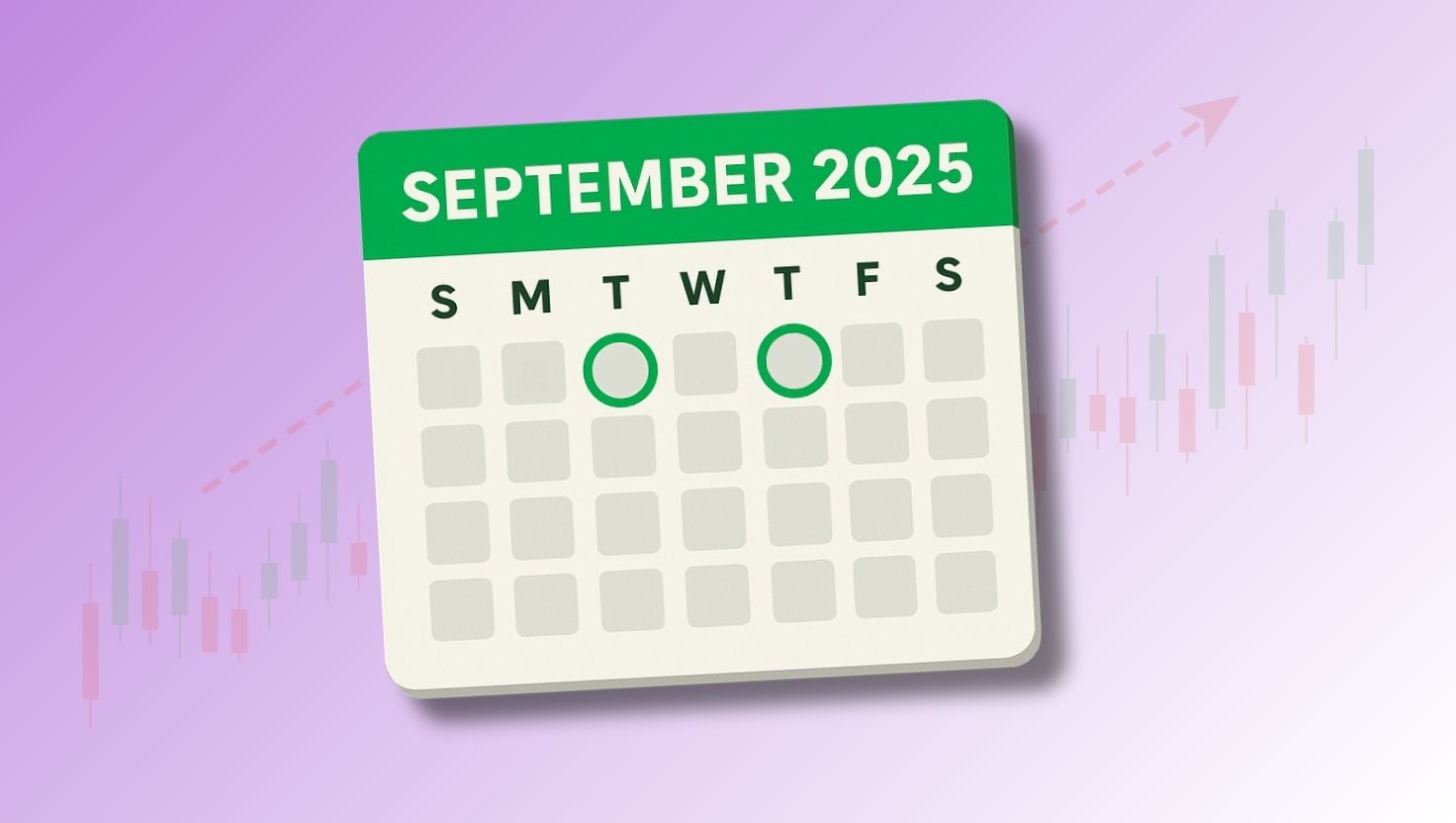
Muhurat Trading 2025 on 21 Oct: Everything You Should Know
By
Arihant Team
The auspicious Muhurat Trading session for Diwali 2025 is set for October 21st from 1:45 PM to 2:45 PM. It's a special one-hour window where investors make symbolic trades to welcome the new Samvat year, believed to bring prosperity.
In This Article
- Muhurat trading 2025: date & session timings
- What is muhurat trading?
- Why do people participate in muhurat trading?
- What Happens During Muhurat Trading?
- Investing Beyond Stocks: The Allure of Gold and Silver ETFs
- Is muhurat trading profitable?
- Tips for muhurat trading for beginners
- A Word of Caution
- Muhurat Trading FAQs
Every year during Diwali, while diyas light up homes and sweets bring warmth to families, the Indian stock market buzzes with a unique tradition: Muhurat Trading. For generations, this special one-hour trading session on Diwali has brought together seasoned investors, first-time traders, and families who see the stock market not just as numbers and charts, but as a celebration of prosperity. Think of it as Lakshmi Pujan for your investments, where trading floors light up with the same festive spirit as our homes do with diyas and rangoli.
The tradition itself has a long history, with the first Muhurat Trading session held in 1957 by the Bombay Stock Exchange (BSE). Since then, it's become a hallmark of the Indian financial market, celebrated by both retail and institutional investors. While most see it as a symbolic gesture, a modern investor knows it's an opportunity to blend culture with smart financial strategy. Muhurat Trading offers traders and investors with a symbolic opportunity to start the new financial year (Samvat) with a positive outlook.
In this article, we’ll decode not only the Muhurat Trading timings for 2025, but also its history, significance, and what savvy investors do differently on this day.
Muhurat trading 2025: date & session timings
The National Stock Exchange (NSE) and Bombay Stock Exchange (BSE) have announced that the special one-hour session for Diwali 2025 will take place on October 21st.
Diwali Muhurat Trading Schedule – 21st October 2025.
Things to know about Diwali 2025 Muhurat Trading Session
- Please keep your account funded in advance for the Special Muhurat Trading Session.
- Call and Trade facility will be available between 01:30 PM and 02:45 PM.
- There will be no funds payout/withdrawals on 21st October 2025.
- Margin pledge and unpledge facilities will be unavailable on 21st October 2025.
- All intraday positions (including cover and bracket orders) may be squared off after 02:30 PM.
- Credit bills of all segments for 20th October 2025 will not be available on the Trading System Margins on 21st October 2025.
- Stocks bought on Monday, 20th October 2025, will not be available for selling on Tuesday, 21st October 2025 (BTST) due to the double pay-in of securities.
- To know more, refer the NSE circular
What is muhurat trading?

The word “muhurat” comes from Sanskrit and means an auspicious time. In Indian culture, important beginnings from marriages to businesses are tied to these timings.
On Diwali, this special session is a deeply rooted tradition where investors make token trades to welcome the new Hindu Samvat year. The belief is that investments made during this lucky hour will bring prosperity and wealth throughout the year. It's not just for a specific community; it's a practice that's become a hallmark of the Indian financial market, celebrated by both retail and institutional investors.
Every year, on Diwali, the markets open for a one-hour special session, when traders and investors buy or sell shares believing it ushers in prosperity and good fortune. It coincides with Lakshmi Puja, where many brokerage houses, investors, and families perform rituals before executing their first trade of the new Samvat year.
But here’s what’s even more interesting: in recent years, muhurat trading has gone beyond being just tradition. With India’s booming economy, rising retail participation, and global attention on our stock markets, this one-hour session has seen increased excitement, smart strategies, and even record-breaking moves.
Why do people participate in muhurat trading?
While it’s a ceremonial event, muhurat trading also offers some practical advantages for investors.
- Auspicious beginning: Many use this time to start new investments, particularly in high-quality, fundamentally strong stocks, holding them for the long term as a symbolic gesture for future wealth. Investors open new Demat accounts, buy blue-chip stocks, or make their child’s first equity purchase.
- Emotion meets strategy: While symbolic, it reinforces positivity, discipline, and long-term wealth-building. Many investors track their muhurat purchases for years, helping them build meaningful wealth.
- Cultural & religious significance: Diwali marks the start of the Vikram Samvat year (2082 in 2025). Buying during Muhurat is believed to bring prosperity and good fortune.
- First trade for new investors: It's an ideal entry point for new investors to take their first step into the stock market. The atmosphere is less pressured, and the focus is on a ceremonial first trade rather than high-stakes profit.
What Happens During Muhurat Trading?
Brokerages and investors treat this session with reverence:
- Offices are decorated with rangolis and lights.
- Lakshmi Puja is performed at trading desks.
- The first trades are symbolic sometimes even gifted to Goddess Lakshmi before settlement.
- Many investors buy shares as Diwali gifts for loved ones.
Investing Beyond Stocks: The Allure of Gold and Silver ETFs
If direct stock investments feel too risky or you're looking for a way to diversify your portfolio, consider gold or silver ETFs. These are a fantastic alternative for Muhurat Trading. An Exchange Traded Fund (ETF) that tracks the price of physical gold or silver, they allow you to participate in the auspicious tradition without the need to buy and store physical precious metals.
It’s an easy and convenient way to get exposure to gold and silver, both considered highly auspicious in Indian culture. By investing in these ETFs, you're not just making a symbolic trade; you're also adding a valuable hedge against inflation and market volatility to your portfolio. So, even if you are an avid stock investor, making a small investment in gold or silver ETFs can make your portfolio even more prosperous this Diwali.
Is muhurat trading profitable?
This is the question on every investor's mind. Like any other trading day, investments made during the Muhurat Trading session carry risk and do not guarantee a profit. While the general sentiment is often bullish due to the festive spirit, actual returns depend on broader market conditions and the quality of the investment you make.
The real significance of Muhurat Trading lies not in a guaranteed quick gain, but in its long-term symbolic and psychological value, often encouraging disciplined investing and a positive mindset toward wealth creation.
Tips for muhurat trading for beginners
✅ Keep It Simple: Pick strong, fundamentally reliable stocks, ETFs, or mutual funds.
✅ Avoid Risky Bets: Don’t chase volatility; treat this as a symbolic start, not a quick win.
✅ Make It Personal: Giving stocks or mutual funds to your loved will be a more meaningful gift that will grow in value with time over materialistic items that depreciate right after you buy them.
A Word of Caution
While the atmosphere is festive, remember that Muhurat Trading is still a live market. Trading volumes are often lower, which can lead to increased volatility. It's crucial to approach this session with a clear strategy and avoid making impulsive decisions based on emotion alone. Stick to your research, and don't get carried away by the festive spirit.
In a world where algorithms dominate and markets run 24/7, Muhurat Trading stands as a unique blend of culture and commerce. It’s a moment to pause, honor tradition, and begin the new financial year with optimism. So, whether you’re making a symbolic trade or a strategic move, happy investing!
Muhurat Trading FAQs
When is the Muhurat Trading 2025 session, and what are the timings?
The special one-hour session for Muhurat Trading 2025 will be held on Tuesday, October 21st. The timings are set for 1:45 PM to 2:45 PM, a change from the usual evening schedule. There will also be a pre-open session from 1:30 PM to 1:45 PM.
Can I do intraday trading during Muhurat Trading?
Yes, absolutely! The session operates just like a regular trading day, so you can buy and sell stocks for both delivery and intraday trading. However, given the short one-hour window and potential for lower volumes, it's best to be quick with your trades and have a clear strategy.
Can I trade in Futures and Options (F&O) during Muhurat Trading?
Yes, F&O trading is also permitted during the Muhurat session. However, just like with equities, you should be mindful that trading volumes and liquidity might be lower than on a regular trading day.
Are the trading rules and regulations different for Muhurat Trading?
No, the trading rules and regulations for Muhurat Trading are the same as on any regular market day. The session is simply conducted at a special one-hour time window on Diwali, but all trades follow the usual SEBI guidelines and exchange norms. Investors can buy, sell, and hold stocks in the same way they would during normal market hours—there are no special exemptions or rule changes. The only difference is the timing, which marks an auspicious start for investing.
Do stocks always go up in Muhurat Trading?
While the festive spirit and tradition often bring in positive market sentiment, it's a myth that stocks always go up. While historically, the market has often closed in the green on Muhurat Trading sessions, this is by no means a guarantee. The market's performance ultimately depends on global and domestic economic factors, news, and overall trading activity. It's best to rely on solid research and a well-thought-out strategy rather than hoping for a festive rally.
Do margin rules apply in Muhurat Trading?
Yes, margin rules remain the same as regular trading. Any purchase of shares requires sufficient funds or margin availability in your account. There are no special exemptions for margin trading on Muhurat day.
Is Diwali a market holiday?
Yes, Diwali is a market holiday. The stock exchanges (NSE and BSE) remain closed for regular trading on the main day of Diwali, which is Diwali-Laxmi Pujan. However, they make a special exception for the short Muhurat Trading session to honor the tradition. So, while you won't have a full day of trading, you'll still have that one auspicious hour to make your trades.
Which stocks should I buy on Muhurat Trading?
That's the million-dollar question, and there's no single right answer! As a rule of thumb, many long-term investors use this auspicious time to invest in "blue-chip" stocks or companies with strong fundamentals that they believe in. Think of high-quality companies that have proven their worth over time. Avoid making impulsive decisions on speculative or hyped-up stocks. Remember, the goal of this session for many is to start the new year on a strong and stable financial note.
Every year, close to Diwali Arihant’s research team comes out with Diwali Stock Picks for Muhurat Tradingw here our experts handpick companies with strong fundamentals and good future growth prospects as recommendations. However, this list does not guarantee profit and you should look at your own risk profile and do your own research before making the investment. Stay tuned on this blog and make sure to download the ArihantPlus app to get your hands on our exclusive Muhurat Stock Picks.
Is it mandatory to participate in Muhurat Trading?
Not at all. Participation is completely voluntary. It's a cherished tradition for many, but there's no requirement to join in. The real value is in the symbolic and psychological significance of starting the new financial year with a positive mindset.
Related Topics













